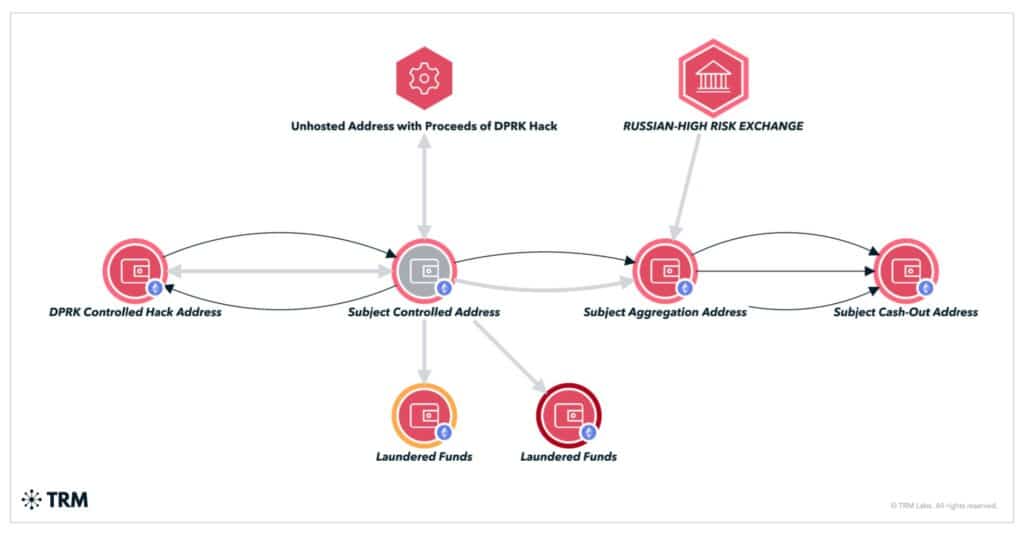Authorities in Argentina arrested a Russian national for laundering millions in crypto tied to North Korea’s Lazarus Group.
Argentinian authorities have arrested a 29-year-old Russian national for money laundering, uncovering a multimillion-dollar operation based in the country.
Per a report from blockchain analytics firm TRM Labs, the suspect is accused of laundering illicit cryptocurrency from North Korea‘s Lazarus Group, among other criminal entities. The investigation uncovered a complex web of transactions across multiple blockchains and assets, involving over 2,400 transfers in crypto amounting to more than $4.5 million worth of USDT on the TRON network.

During the operation, authorities seized over $120,000 worth of crypto and an additional $15 million from other properties controlled by the suspect. According to local news reports, the scheme used a Telegram bot to convert Russian rubles, stablecoins, euros, and U.S. dollars into Argentine pesos.
The investigation, initiated in November 2023 by the San Isidro Specialized Fiscal Unit in Cybercrime Investigations and led by Prosecutor Alejandro Musso, discovered that a portion of the $100 million stolen in the Harmony Bridge hack had flowed into a crypto wallet in Argentina.
Per reports, the suspect also conducted numerous transactions through Binance accounts both domestically and internationally, suggesting a complex network involving both Russian and Argentine operations.
The investigation aligns with Binance’s recent moves to enhance its compliance efforts following a $4.3 billion settlement with the U.S. Department of Justice and other authorities. As crypto.news reported earlier, the exchange is planning to boost its workforce by 1,000 new employees, with 20% going to compliance roles by the end of 2024.




